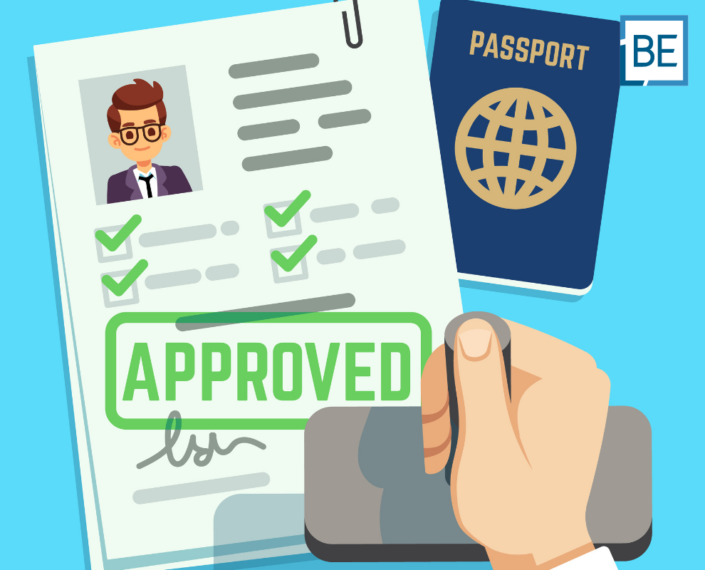en Thaïlande
Nouvelle réglementation pour les plateformes numériques en Thaïlande
13/01/2023
La Thaïlande a approuvé un décret royal concernant les plateformes numériques. Ce décret a été officiellement publié dans la Gazette du gouvernement, ce qui signifie que les plateformes numériques doivent se conformer à cette nouvelle réglementation.
Ce décret introduit une série de nouvelles définitions, règles et réglementations pour les plateformes numériques, qui seront examinées dans cet article.
Points clés
- Les plateformes numériques doivent se conformer au nouveau règlement.
- Certains fournisseurs de plateformes numériques doivent désormais informer leurs utilisateurs des mises à jour ou publications.
- Certaines plateformes numériques situées en dehors de la Thaïlande seront également soumises au décret royal et devront nommer un coordinateur en Thaïlande.
- Certains fournisseurs de plateformes numériques sont dispensés de notifier l'Agence pour le développement des transactions électroniques (ETDA) s'ils sont supervisés par certaines autorités externes ou s'ils sont sur la liste d'exemption de la Commission des transactions électroniques.
Qu'est-ce qu'une plateforme numérique ?
Les opérateurs de plateformes numériques sont des entités qui agissent comme des intermédiaires en ligne, permettant aux utilisateurs de proposer des biens ou services via un réseau informatique. Ces biens ou services peuvent être tangibles, comme des produits physiques, des services, ou immatériels, comme des contenus numériques, et cela, même si la transaction ne se fait pas directement sur la plateforme.
En général, les plateformes numériques font référence à des sites web ou des applications mobiles qui offrent divers services, tels que les marchés en ligne, les réseaux sociaux, le commerce électronique, les services bancaires en ligne et les applications de transports en commun.
Définitions établies par le décret :
Les plateformes numériques suivantes sont soumises au décret royal : celles qui agissent en tant qu'intermédiaires en fournissant un espace de connexion entre les "opérateurs économiques sur une plateforme numérique" et les "consommateurs" via un réseau informatique.
Les définitions des "opérateurs économiques sur une plate-forme numérique" et des "consommateurs" ont été modifiées et excluent désormais l'offre d'actifs incorporels par le biais des plateformes numériques.
Enfin, le décret royal souligne que les opérateurs commerciaux sur une plateforme numérique ne sont pas inclus dans la définition des consommateurs.
Qu'est-ce que le décret royal prévoit d'autre ?
Le décret royal établit également les critères suivants auxquels les plates-formes numériques doivent satisfaire :
Effet extraterritorial
Les plateformes numériques situées en dehors de la Thaïlande seront également concernées par le décret royal et devront désigner un coordinateur local en Thaïlande. Cette exigence oblige les plateformes numériques étrangères à établir une présence commerciale dans le pays.
Marque de certification des plateformes numériques
Le décret royal introduit une marque de certification ETDA (Electronic Transactions Development Agency) pour les plateformes numériques.
Actuellement, l'affichage de la marque semble être facultatif. Des règles plus spécifiques, des procédures et d'autres détails devraient être annoncés à l'avenir.
Partage des données
L'arrêté royal autorise l'ETDA à demander ou à collecter des informations sur une plateforme numérique auprès d'autres organismes publics, conformément à la loi ou aux dispositions contractuelles.
Obligations des fournisseurs de plateformes numériques
Désormais, en vertu de l'arrêté royal, certains fournisseurs de plateformes numériques (une liste complète sera publiée ultérieurement par l'ETDA) sont tenus de fournir aux utilisateurs de leur plateforme les informations nécessaires avant ou au moment de la prestation du service, ainsi que lors de toute modification ultérieure des informations (telles que des conditions générales révisées). Voici quelques exemples :
- Les conditions de fourniture, de suspension ou de cessation du service (y compris des frais, une rémunération et des dépenses transparents et équitables) ;
- Les critères utilisés pour classer, recommander ou faire la publicité de biens ou de services ;
- Les taux de satisfaction et les retours d'information des utilisateurs ;
- L'accès et l'utilisation des données partagées avec les opérateurs commerciaux sur la plateforme numérique ;
- Les demandes de renseignements, les plaintes, le règlement des litiges et les délais de règlement des litiges ;
- Les réponses aux contenus illicites ou sensibles (y compris les pratiques d'évaluation des contenus) ; et
- Toute autre question jugée appropriée.
Exemptions à l'obligation de notification
Tout fournisseur de plateforme numérique placé sous la supervision d'autres autorités, telles que la Banque de Thaïlande ou la Commission des Valeurs Mobilières et des Changes, est dispensé de l'obligation de notifier à l'ETDA l'exploitation de sa plateforme numérique. De même, les fournisseurs figurant sur la liste des fournisseurs de plateforme numérique exemptés établie par la Commission des transactions électroniques bénéficient également de cette exemption.
En outre, la Commission se réserve le droit d'exempter tout autre service de plateforme numérique si elle le juge opportun.
Comment Belaws peut-il vous aider ?
Vous pouvez vous adresser directement à l'un de nos experts pour obtenir plus d'informations sur les plateformes numériques en Thaïlande.
Veuillez noter que cet article est fourni à titre d'information seulement et ne constitue pas un avis juridique.
Nos consultations durent jusqu'à une heure et sont menées par des juristes experts qui parlent couramment l'anglais, le français et le thaï.
Les consultations peuvent être organisées sur WhatsApp ou sur le Logiciel de Vidéoconférence de votre convenance. Une consultation avec l’un de nos experts juridiques est sans aucun doute le meilleur moyen d’obtenir toutes les informations dont vous avez besoin et de répondre à toutes les questions que vous pourriez avoir sur votre nouvelle entreprise ou votre projet.
150 USD
Jusqu'à 1 heure
Paiement en ligne (Paypal ou carte bancaire)
Les consultations juridiques peuvent être menées en anglais, en français ou en thaï.
Les consultations juridiques sont assurées par des des avocats expérimentés dans les domaines concernés.
Questions fréquemment posées
Faut-il payer des impôts sur les crypto-monnaies en Thaïlande ?
Le transfert de crypto-monnaies ou de jetons numériques via un échange enregistré en Thaïlande est désormais exonéré de TVA (7%). Cette nouvelle législation a été appliquée rétroactivement à partir du 1er avril 2022, et durera jusqu'au 31 décembre 2023.
Quel est le pays où les crypto-monnaies sont exonérées d'impôts ?
Les exemples incluent l'Allemagne, le Belarus, le Salvador, le Portugal, Singapour, la Malaisie et Malte.
Les crypto-monnaies sont-elles légales en Thaïlande ?
Oui, les crypto-monnaies sont légales en Thaïlande. Le gouvernement thaïlandais a promulgué et publié des lois visant à créer un cadre juridique pour les crypto-monnaies en Thaïlande.
Binance est-il légal en Thaïlande ?
Binance n'a pas reçu la licence requise de la part de la Commission de sécurité et d'échange de Thaïlande.
La Thaïlande applique-t-elle un impôt sur les plus-values ?
Oui, la Thaïlande applique une taxe sur les plus-values, dont le taux est de 15 %.
Articles connexes
Abonnez-vous aujourd'hui
Abonnez-vous aujourd'hui
À notre newsletter pour les dernières actualités juridiques
en Asie du Sud-Est, les mises à jour de Belaws et
les offres spéciales sur nos services.
To our newsletter today for all the latest legal news in South East Asia,
Belaws updates and special promotions on our services.







